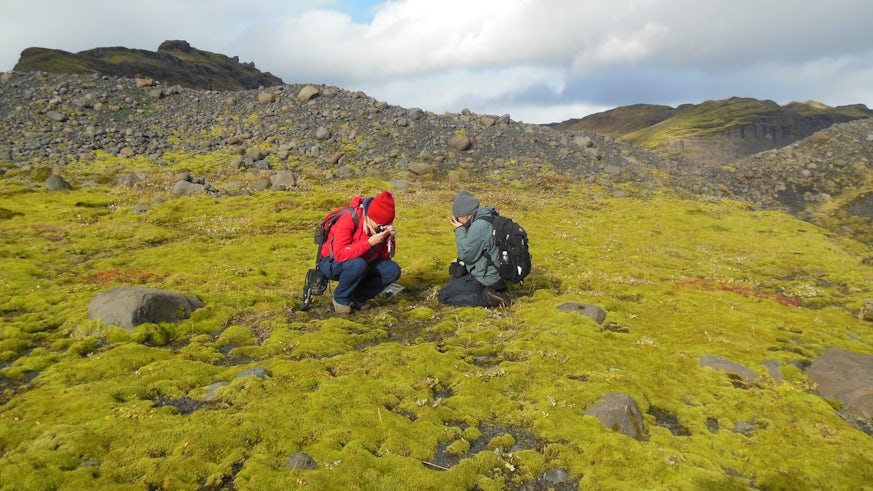The greening of planet Earth
19 February 2018

The first plants to colonise the planet originated around 500 million years ago, much earlier than has previously been suggested by the fossil record, a new study has suggested.
For the first four billion years of Earth’s history, the planet’s continents would have been devoid of all life except microbes. All this changed with the origin of land plants from their pond scum relatives, greening the continents and creating habitats that animals would later invade.
The timing of this episode has previously been based on the oldest fossil plants, which are preserved in rocks about 420 million years old, although spores - their reproductive units - have been found in older rocks.
New research involving researchers at Cardiff University and published in the journal Proceedings of the National Academy of Sciences has shown that these events occurred approximately eighty million years earlier.
This finding is important because plants are major contributors to the chemical weathering of continental rocks, a key process in the carbon cycle that regulates Earth’s atmosphere and climate over millions of years.
Co-lead author of the study Dr Jennifer Morris, from the School of Earth and Environmental Sciences, explained: “The global spread of plants and their adaptations to life on land during the Phanerozoic led to an increase in continental weathering rates that ultimately resulted in a dramatic decrease in the levels of greenhouse gases in the atmosphere.
“Previous attempts to model these changes in the atmosphere have accepted the plant fossil record at face value – our research shows that these fossil ages underestimate the timing of land plant evolution. An earlier origin for land plants therefore could mean that the levels of greenhouse gases in the atmosphere at this time have been underestimated and so these models need to be revised.”
To arrive at their results, the team used a ‘molecular clock’ methodology, which used evidence on the genetic make-up of living species to establish an evolutionary timescale that could fill in the gaps of the fossil record.
The new results now show that the first land plants were alive in the middle Cambrian period, a time during which the first known terrestrial animals started to appear.
